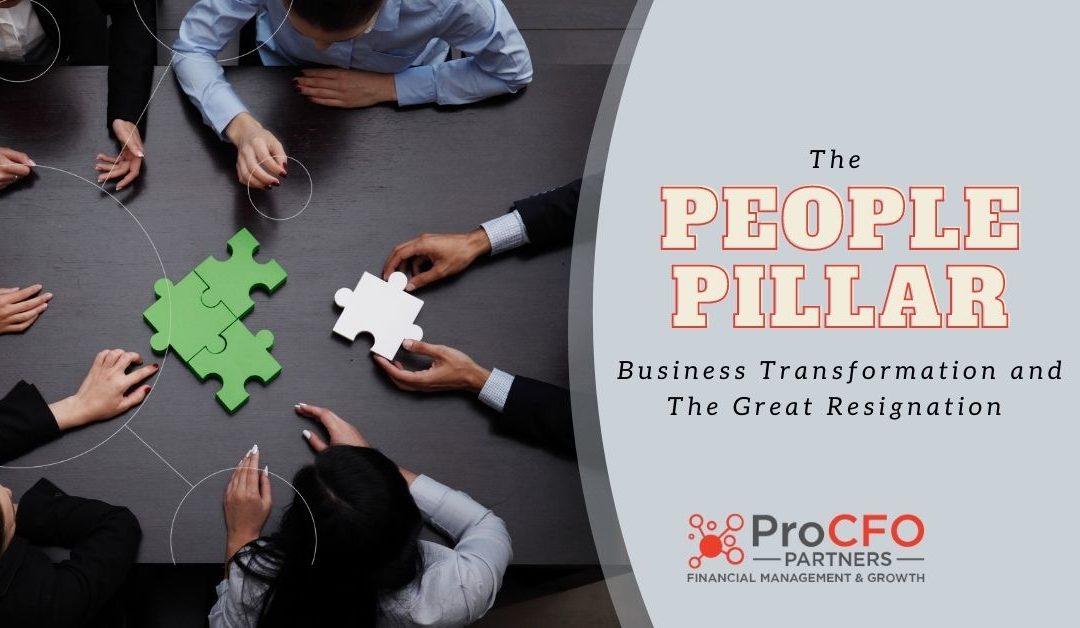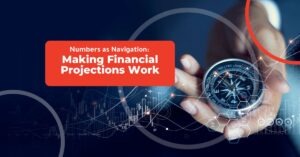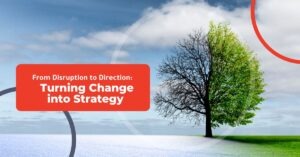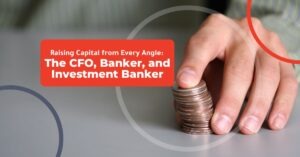MENTORSHIP AT WORK: PEOPLE DEVELOPMENT AND THE GREAT RESIGNATION
Mar 10, 2022
Imagine your very last day at work in your career. Where do you want to be? Who do you want to be? And what if you’d been asked this question on your very first day on the job?
In this article, we’ll explore important questions and encourage critical thought on one of the most important aspects of your business: your people. Especially in the era of The Great Resignation, engaging your team and approaching your Human Resources in a more, well, the human way has never been more essential.
The People Pillar
For a business to thrive, even survive, it must adapt and evolve. Changing trends, market dynamics, competitive climate, and labor force realities require that we transform our businesses. Sounds daunting. But essentially this transformation requires a critical look at just three aspects of your business: People, processes, and technology – what we call the Three Pillars of Progress. Today let’s explore the People pillar.
The way that people are treated is often the key point in the success or failures of businesses.
A business can’t grow without its people because it’s not just about their skills, but also about their ideas and commitment to the company. If employees perceive they’re not cared about, they won’t be motivated.
People Development in The Great Resignation
By now you’ve almost certainly become aware of The Great Resignation, a phrase generally meant to describe the labor force phenomenon of many people quitting their jobs. The reason behind The Great Resignation is a discussion for another day, but a common thread seems to simply be the rethinking of how people spend most of their time (spoiler alert: at work), and with whom, and why.
In the past companies often focused on reward mechanisms to be more competitive and at least relate to the concept of “satisfaction.” Higher pay, better benefits packages, maybe more flexibility. That stuff remains important, but we’re learning they’re not nearly enough, and also – most companies are already competitive here. The challenging reality is people are looking to feel more deeply connected to their work, their colleagues and peers, and to their own sense of wellness – all at the same time.
A company’s human assets are one of its greatest assets. It is up to the company to create an environment where employees are inspired, motivated, and feel valued.
Mentorship for Deeper Meaning at Work
One way to create a more positive experience at work is to develop a culture of connectedness. Mentorship can be a key strategy.
Personal development is an important aspect for any business owner or executive who wants to maintain success, attract talent and retain employees. A mentor or a coach can help people develop and grow. There are many benefits of mentorship, such as:
- Skills development and knowledge transfer that will people get better at their jobs
- Confidence development
- Advice and guidance, especially on navigating tough subjects or charting a career path
- Motivation and focus
We’ve found a powerful way to strengthen the potential of mentorship is for the mentor to start with a seemingly simple question: Imagine your very last day at work, before retirement. Where do you want to be?
This leads to deeper questions. Who do you want to be? Why are you doing this work, whatever it is? How are you balancing work with other important aspects of your life?
The question instigates critical thinking and contemplation, and with the answers inevitably come directions to follow. You can start reverse engineering success based on the “desired outcome”. Of course, a person’s answers to the question will change over time – that’s part of the process! But what this does is create accountability for both the mentor and the mentee – this is where you want to go. Let’s get there together.
Mentorship is not just for people who are starting out in their careers, it can also help mid-career professionals find their way and help more seasoned executives stay on the cutting edge of their industries.
People Development is Your Competitive Differentiator
We’re looking for a purpose at work. As a human community, if you will, we’re looking for a bigger purpose that gives us more satisfaction and a sense of peace, comfort, or resolves. If organizations want to differentiate themselves and give themselves an edge over their competitors to attract and retain talent, sincere personal interest is going to be the key.
And back to three Pillars of Progress – they work in unison. Later we’ll explore the other pillars of processes and technology. For now, know that how your people connect not only to each other but to the other functions of your business, requires strategic thinking – just like other functions of your business.


